Road to Revolution
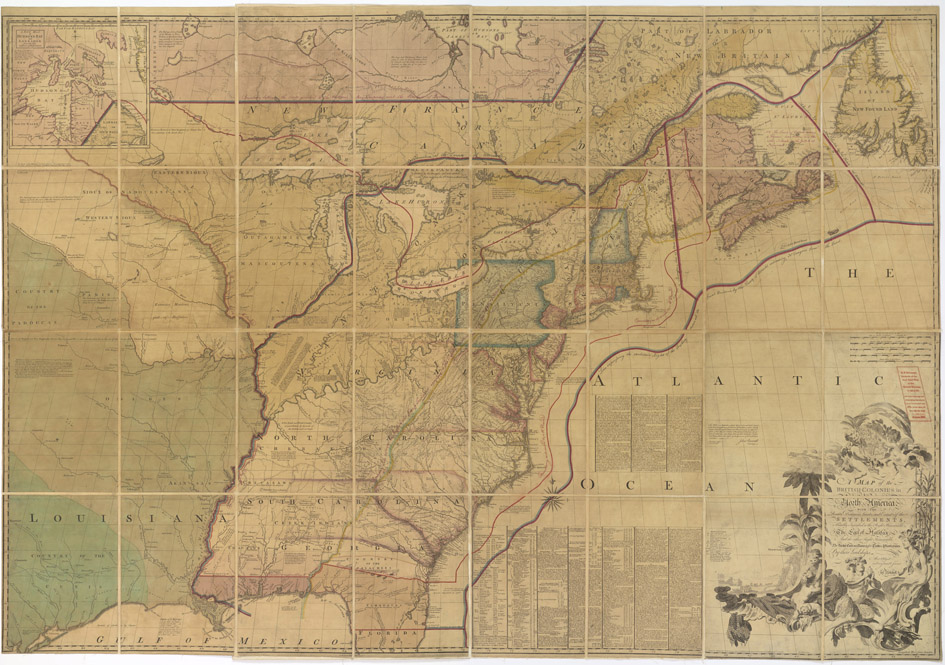
Annotated Map of the British Colonies in North America with the Roads, Distances, Limits and Extent of the Settlements, ca. 1775. Records of Boundary and Claims Commissions and Arbitrations
Annotated Map of the British Colonies in North America with the Roads, Distances, Limits and Extent of the Settlements, ca. 1775. Records of Boundary and Claims Commissions and Arbitrations
Augmenting the well-known sequence of events in the two years preceding July 4, 1776, are displays that focus on the diverse experiences and perspectives for members of the Founding generation whose stories are less well known—including Native Americans, free and enslaved African Americans, and women.
Collectively Road to Revolution reveals that the journey from colonial resistance and rebellion to American revolution and independence is not composed of a single narrative but a story of many intersecting (and diverging) paths in the universal pursuit of life, liberty and happiness.
Roots of Rebellion
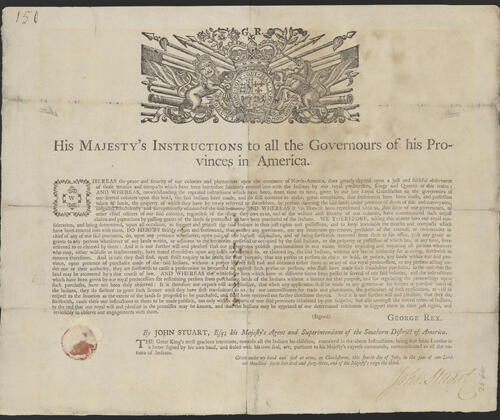
June 21 - August 28, 2024
The origins of the American Revolution can be traced to another conflict–the Seven Years' War. Colonial resistance emerged in response to new imperial policies related to western lands and eastern taxes (and trade) as Parliament grappled to administer its vastly expanded empire.
First Continental Congress
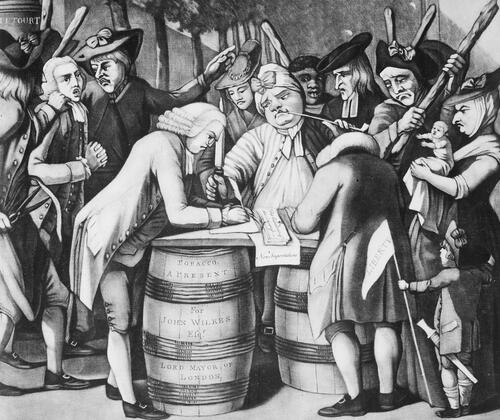
August 29 - October 30, 2024
The First Continental Congress convened to discuss united resistance to the Coercive Acts and issued a Declaration of Rights and the Articles of Association. Recognizing that unity would be essential to forcing a repeal of the so-called "Intolerable Acts," the Continental Association formed local committees to put economic pressure on Parliament–and on their neighbors–to submit to patriotic boycotts.
Native Americans and the American Revolution
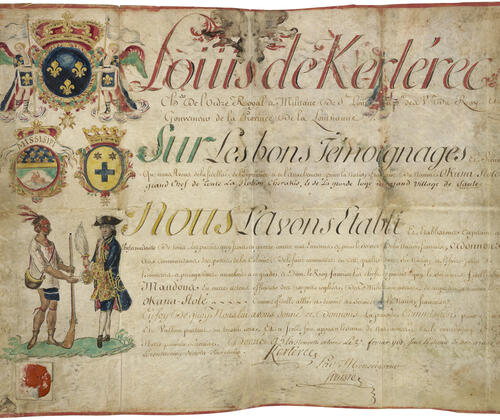
October 31, 2024 - January 29, 2025
The American Revolution aligned and divided Native American communities just as it did British North American colonists. The stories presented reveal that whether Native Americans sided with the Rebels, Redcoats, neither, or both, the actions of tribes and their leaders were primarily motivated by a desire to preserve their land and autonomy.
Battles of Lexington and Concord
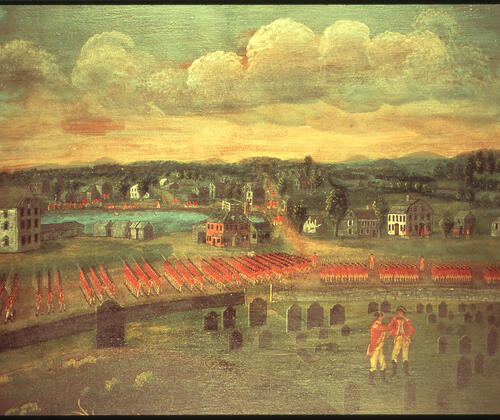
January 30 - April 30, 2025
More than a year before independence was declared, war broke out between the British Army and New England militia at the Battles of Lexington and Concord. While we will likely never know who fired the “shot heard round the world,” the events of this defining moment spurred Continental action and have stirred the national imagination ever since.
Mobilizing for a Revolutionary War
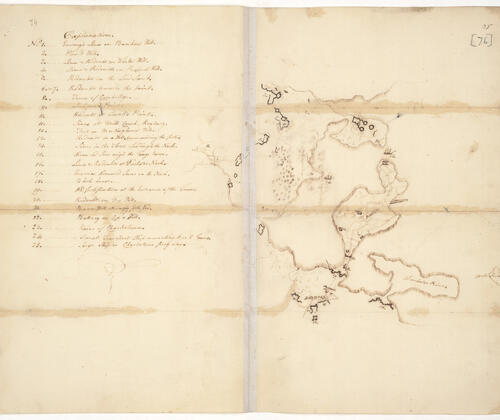
May 1 - June 18, 2025
As the Second Continental Congress established the Continental Army, the second major battle of the American Revolutionary War commenced. Although the Redcoats prevailed in the so-called Battle of Bunker Hill, high British casualties forced many to rethink colonial military capability.
The Olive Branch Petition
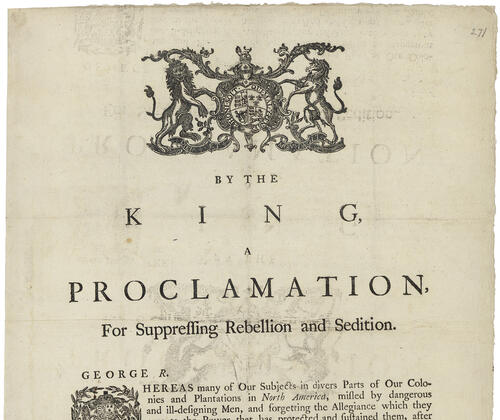
June 23 - September 24, 2025
Though a state of war existed between the British Empire and its American colonies many, if not most, colonists still wished for peace. In an attempt at reconciliation, Congress pledged American loyalty to King George III in its Olive Branch Petition. In return, the King proclaimed every rebel a traitor. Great Britain's refusal to negotiate raised the stakes for revolutionaries and strengthened colonial support for independence.
The Revolution’s Impact on American Society

September 25 - February 19, 2026
The Revolutionary War touched every aspect of American society and brought a broad spectrum of men and women to the frontlines. Officers and enlisted soldiers distinguished themselves in battle and allied forces helped to secure an American victory.
Behind the Ink of the Declaration of Independence
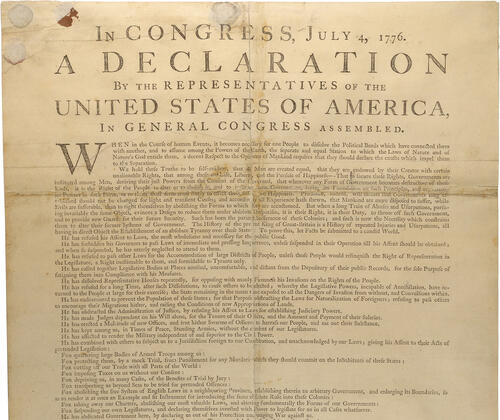
February 20 - April 30, 2026
Meet the people who left their mark in ink on the Declaration of Independence.
Additional Online Resources:
- America's Founding Documents
- Founders Online
- Milestone Documents
- The Text Message: American Revolution
- Military Records Research: The American Revolution
Exhibit Credits:
Road to Revolution is made possible in part by the National Archives Foundation, through the generous support of Comcast Corporation, Microsoft, and Procter & Gamble.